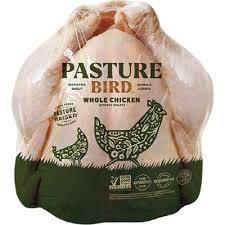As reported previously, Perdue Farms has petitioned the FSIS to end confusion over outside housing systems and to clearly define and differentiate between “pasture-raised” and “free-range” on product labels.

The Perdue action is supported by the Food Marketing Institute, subject to transparency in rule-making and application of scientific consensus from experts including veterinarians, behaviorists and food safety professionals. FMI stated, “It is important that FSIS engage with FDA regarding labeling policies as well as considering other USDA agencies and other FSIS regulations and policies related to labeling changes.” The industry association added, “Changes to labeling policies should be evaluated with a comprehensive examination of all factors including but not limited to emerging production practices, economics, production and labels.”

Vital Farms opposes the petition and has encouraged FSIS to deny separate definitions of “pasture-raised” and “free-range”. They based their approach on “putting unnecessary regulatory burdens on American family farms.” Vital Farms is a packer and marketer and not a “family farm.” How eggs are labeled is not a concern of a contractor or independent producer at the farm level. Vital Farms maintains that there are a variety of ways to maintain non-confined chickens, a self-evident observation. The Company also cites the projected cost of compliance. These objections are fatuous. A formal definition of “Free Range” and “Pasture Raised” would restrain any packer from interchanging eggs from alternative systems according to cost of acquisition or in response to marketing needs, since there would be a legal restraint on labeling.
The issue of labeling either broiler chicken or eggs highlights the obvious complications arising from two federal agencies administering aspects of food production. This could be resolved with a single Federal food production and safety agency as previously recommended by reviewers in industry and academia.